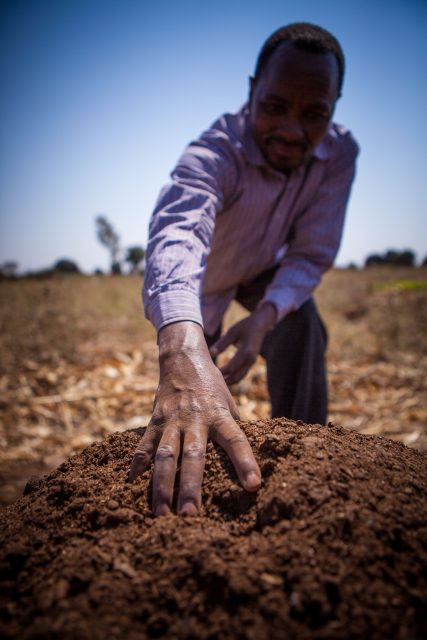Feed the Future Zimbabwe Non-Timber Forest Products Global Development Alliance
Zimbabwe
Overview
The five-year Feed the Future Zimbabwe Non-Timber Forest Products Global Development Alliance (NTFP GDA) (2023-2028) works across 23 districts of Zimbabwe to expand the market for Zimbabwean non-timber forest products (NTFPs), such as baobab, marula, Kalahari melon, and Ximenia. The NTFP GDA—a partnership between USAID, CNFA, and Organic Africa—will train and engage new farmers and wild collectors as specialty-certified suppliers and develop new processing facilities and technologies to expand the domestic and international supply of natural ingredients from Zimbabwe.
Expected Impact
- 12,000 new farmers and wild collectors contracted as NTFP suppliers
- $1.9 million in sales from program participants, benefitting 60,000 household members
- 160,000 hectares of biologically significant land with improved natural resource management
- $7.7 million in private sector investment leveraged for market expansion
- 80% women participants

Leveraging $7.7 million in private sector investment, the NTFP GDA seeks to provide new and sustainable income-generating opportunities for 12,000 smallholder farmers and wild collectors while protecting at least 160,000 hectares of forest and farmland through the introduction of improved community-led natural resource management, carbon market engagement, and organic farming practices. It also seeks to improve the resilience of vulnerable and marginalized communities, particularly women and youth, by increasing and diversifying household incomes and strengthening environmental stewardship from the commercialization of NTFPs in Zimbabwe.
By creating income-generating opportunities that rely on nutritious and diverse forest resources and by paying premium prices for products with organic, Fair Trade, FairWild, and UEBT certifications, the GDA will incentivize the protection of natural resources.
Approach
The NTFP GDA will expand Organic Africa’s geographic reach and community-based supplier network, building on the company’s core values of social, environmental, and economic sustainability.
The GDA will focus on three inter-related components to achieve its overall objectives:
- Increased Production and Supply: Through targeted training for 12,000 smallholder farmers and wild collectors and investment in tools for the local primary processing of raw materials, the NTFP GDA will improve the supply of NTFPs that meet market standards and increase income-generating opportunities in rural communities. Engaging new suppliers and other market actors in Organic Africa’s supply chain will provide men, women, and youth with the training and tools that they need to increase yields, enhance efficiency, and meet certification requirements to achieve premium pricing.
- Enhanced Product Quality: The GDA will introduce new processing equipment to improve efficiency and will expand community-based and commercial processing capacity and storage with investments in new facilities and expansions to existing facilities, creating new employment opportunities. The NTFP GDA will support Organic Africa to continue strengthening traceability systems and operating procedures, helping producers earn and maintain specialty certifications like organic, FairWild, Fair Trade, and UEBT, which carry social, environmental, and financial benefits for participants. Together, CNFA and Organic Africa will leverage the increased supply of certified NTFP products in local markets, expand access to high-value export markets, and grow the domestic availability of Zimbabwean natural ingredient products.
- Improved Natural Resource and Forest Management: The NTFP GDA will incentivize the sustainable use and protection of biodiverse forest areas and build the capacity of farmers, wild collectors, and community groups to effectively manage their natural resources.
Partners
Organic Africa is a socially responsible family of companies, including Organic Africa, B’ayoba, and KaZa Natural Oils, founded and operating in Zimbabwe since 2007. Organic Africa specializes in partnering with farmers and wild collectors to supply sustainably and ethically produced natural ingredients, such as baobab, rosella, and natural oils, with specialty certifications for domestic and export markets. Organic Africa is a Zimbabwean social enterprise and leading producer, exporter, and domestic supplier of specialty-certified natural ingredients products.


